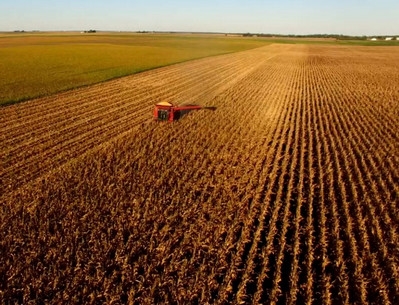
Civil society open letter to Margrethe Vestager, European Competition Commissioner.
The European Commission will conclude its investigation into the Bayer-Monsanto merger in the coming days. CIDSE is joining a call by civil society organisations urging the Commission to prevent what could become the world’s largest agriculture company, dominating the seeds and chemicals markets for the years to come.
OPEN LETTER FROM CIVIL SOCIETY CALLING FOR THE BAYER-MONSANTO MERGER TO BE REJECTED
Dear Commissioner Vestager,
We, the undersigned organisations, call on the European Commission to reject on competition grounds the acquisition of Monsanto by Bayer. In particular, we call on you as Competition Commissioner to prevent new monopolies forming in the combination of seeds and pesticides (vertical concentration) as well as in the field of digital farming (integrating seeds, pesticides, gene sequencing, data platforms). We urge you to ensure fair access, innovation and competition in agriculture.
We are deeply concerned that the measures being proposed so far will allow Bayer to maintain an overwhelming and unfair market advantage that will have negative impacts on competition, especially in seeds, fair prices and real innovation for farmers and breeders.
Allowing Bayer to sell off parts of its pesticides and seeds divisions to other large corporations in the same field, such as BASF, will do nothing to address the concerns about the market concentration, corporate control and lack of competition in the agri-business sector. In addition to the negative effects of the merger on the markets for seeds and pesticides and its negative impact on innovation towards more sustainable food systems, we are increasingly concerned about the impacts the operation will have on digital farming. If the merger is completed, Bayer-Monsanto will be poised to be the major player in collecting, analysing and monetising data in agriculture. This raises the following significant concerns:
- Bayer-Monsanto would become the biggest player in the field of data platforms and data collection,exposing farmers to risks and problems similar to those seen in existing data platforms such as Google,Amazon and Facebook. The rapid development in agriculture data platforms creates a new dynamic wherecorporations can increase their economic power and stifle innovation and competition for years to come.There are no other competitors which have a comparable investment and know-how in this field. To giveBASF an interface to use the Bayer platform is completely insufficient, as the data, know-how andalgorithms stay at Bayer.
- Bayer-Monsanto will be able to combine its data businesses with its seeds, traits and chemicals to create anew unprecedented platform. This will be a way to leverage the sale of one product into another,integrating all of its businesses and thereby raising barriers to innovation or disruption from competitors.
- The combined data operations of Bayer and Monsanto would give them a ‘first mover’ position in thesector, creating a unique opportunity to exclude competitors and/or to bias the market (for seeds andpesticides as well as along the chain from advisory service to sales channels). Monsanto’s software alreadylimits farmer selection to hybrid seeds and future data algorithms will likely only recommend solutionsbased on their own products.
- There is currently no national or EU legal framework to control the use of data collected by agriculturecompanies or agreed boundaries for their economic exploitation and tradability. Both Bayer and Monsantoare already well advanced in the introduction of digital farming in Europe. Monsanto, for example, is in2018 rolling out its data platforms in 8 EU countries.In the absence of any legal framework on how data will be collected or used, the merger will allow Bayer-Monsanto to accumulate, control, and monetise large quantities of farming data.There is very little public support for this merger and a recent opinion poll shows that the majority of citizenswant the Commission to block it. Any proposal to agree the merger will increase people’s sense ofpowerlessness, and imply that their voices do not matter. We expect the European Commission to representand defend the public interest on this issue.We therefore call on the European Commission to reject the Bayer-Monsanto merger in order to prevent afurther concentration of the seeds and pesticides markets as well as the creation of a dominant marketposition in the field of agricultural data.
Signed:
Friends of the Earth Europe
WeMove.EU
Oxfam
PAN Europe
Greenpeace
Save Our Seeds
Birdlife Europe
European Coordination Via Campesina (ECVC)
Slow Food
ARC2020
EEB
IATP Europe
Food & Water Europe
Compassion in World Farming
Corporate Europe Observatory
CIDSE
Fair Trade Advocacy Office (FTAO)
CONCORD Europe
ACT Alliance EU
IFOAM EU
COAR)))
Navdanya International
EcoNexus
SEEDS ACTION NETWORK
Rettet den Regenwald
INKOTA-netzwerk e.V.
FDCL e.V.
Arbeitsgemeinschaft bäuerliche Landwirtschaft, AbL
Companions for Hope
Arche Noah VEREIN
FOCSIV
Aktion Agrar
Werkstatt Ökonomie e. V.
Goliathwatch
Forum Umwelt und Entwicklung // German NGO Forum on Environment and Development
Sustain
Die Freien Bäcker
Biovision
MISEREOR
Brot für alle
Coordination gegen BAYER-Gefahren
Stop Bayer Monsanto
Zahony pro skolky
Asociace socialniho zemedelství
Asociace místních potravinových iniciativ, o.p.s.
Ecologistas en Acción
Solidarity Sweden – Latin America
Red Semillas Aragon-España
GMWatch
CCFD – Terre Solidaire
Aardewerk vzw
Biofuelwatch
MedSOS
mpOC
CERAI, Centre for Rural Studies and International Agriculture
GM Freeze
Ekumenická akademie
ASEED Europe
CEPTA – Centre for Sustainable Alternatives
LA ROUTE DU SEL ET DE L’ESPOIR
CARI – Centre d’Actions et de Réalisations Internationales
CooLAND
Prijatelji prirode Eko Element
Gen-ethethisches Netzwerk
EKO-Leonardo
Eko Udruga Majski Cvijet
Centar za krš i speleologiju
UG EKO FORUM Zenica
LIR Evolucija / LIR Evolution
A Sud – Ecologia e Cooperazione
CDCA – Documentation Centre on Environmental Conflicts
Both ENDS
